A couple of weeks ago, I received an invitation from second year U-M Medical School student Linda Li to celebrate female leaders in healthcare by participating in XX in Health Week, which takes place this week. XX in Health is an initiative of Rock Health, which aims to connect and empower female visionaries in health care. XX in Health Week is a time to share stories, create awareness and stimulate dialogue around the importance of gender diversity in health care. As such, I thought it would be a wonderful opportunity to share perspectives from female leaders who hold diverse positions at the U-M Health System and so I sent an email to several that asked two questions:
- What should young women in medicine begin doing early in their education and careers to prepare themselves for leadership roles?
- Why is gender equality and diversity in the workplace important? Is there a particular experience around gender diversity from which you’ve learned?
Below are the compelling and inspiring responses I received. Enjoy!
————————————————————————————————————————————–
 Gina Bertolini, J.D.
Gina Bertolini, J.D.
Associate Vice President and Deputy General Counsel, UMHS
As a health lawyer in a leadership role at UMHS, I’ll answer this more generically to address what young professional women in any profession should be doing to prepare themselves for leadership roles.
On leadership: Embrace any opportunity to grow and develop, including accepting opportunities and tasks that will expand and challenge your comfort zone. In order to excel and achieve success, it is not enough to simply meet expectations. Seek growth opportunities, challenge yourself to learn something new, accept a task or a level of responsibility that is more than what you think you can do, and then do it. Navigating this course will not be without its difficulties; shortcomings, even failure, will be part of the growth process. But acknowledging shortcomings, admitting mistakes, and committing to grow and learn will help stretch your comfort zone, expand your area of expertise, and develop confidence. It also will expose you to opportunities you might not otherwise get, such as putting you in contact with professionals who are senior to and more experienced than you, or with clients or third parties with whom you might not otherwise have contact early in your career. Particularly early in your career, don’t shy away from opportunities to demonstrate leadership outside of your traditional day-to-day duties, such as by mentoring newer and less experienced professionals, establishing a summer program for students, planning the office charity drive, participating in a community event on behalf of your employer, or serving on a committee.
Additionally, young women should practice expressing their opinions and experiences with conviction and confidence, even when confidence is lacking. Practice articulating your thoughts and ideas in a group setting, and put yourself in situations where you will be challenged to express yourself and defend your position. Do not shy away from conflict; rather, learn to handle it with poise and intellect, and learn how and when to be assertive.
Lastly, don’t ever belittle those around you, or seek gain at their expense. A true leader does not benefit from the shortcomings or failings of those around her; rather, she is someone who continually elevates everyone around her to achieve their best.
On gender equality and diversity: The presence of men and women from all walks of life help enrich a workplace by leveraging the unique experiences and perspectives of a diverse and gender-balanced workforce, ultimately better representing and caring for an increasingly diverse population. A culture of inclusion helps foster creativity, confidence, appropriate risk-taking, and growth.
Frequently, I am the only woman, or one of just a few, in the room to address an issue crucial to the organization. Some of my uniquely female qualities – as a consensus builder, excellent communicator, and compassionate advocate for the patients and community members whom we serve – have helped move the conversation beyond rhetoric and conflict to resolution. But most importantly, I have learned that to be a woman in a leadership role is wonderful, and thankfully I am not alone, the way my sisters a generation or two before me were. Rather than hide or minimize those “quintessential” female traits, I embrace them, and I use them to assist me in shaping my view of the world, my work, my colleagues, and my clients.
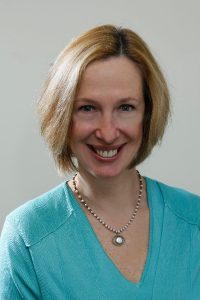 Carol Bradford, M.D.
Carol Bradford, M.D.
Charles J Krause M D Collegiate Professor of Otolaryngology
Chair, Department of Otolaryngology-Head and Neck Surgery
Women should seek out leadership experiences and training early in their careers to prepare them to be the leaders of the future. Examples include medical student council, leadership roles within the health system and hospital, national committee service, etc. Valuable leadership training opportunities include ELAM (Drexel University), Linkage Leadership Institute, UMHS leadership day activities and our Health System Leadership Training with the Business School.
When it comes to gender equality and diversity, I would say that I have been fortunate to have outstanding mentors (both men and women) and that diversity is essential to achieve our goals and to represent the community that we serve.
In 2009, I presented at a national meeting on the topic of gender issues and I shared what I encountered over my career. Here are some excerpts:
What I’ve been told: “You know, they don’t take women in the Otolaryngology residency training program at the University of Michigan.” Faculty career advisor, 1986
What I’ve been asked: “You don’t plan to have children, do you?” Residency interview, 1986
What I’ve heard: “The reason our revenue is down is because one of our faculty members is out on maternity leave.” 1995, while on maternity leave following the birth of my second child
Advice I’ve received: “You know, women should really be at home raising their families.” SUO meeting, 2005
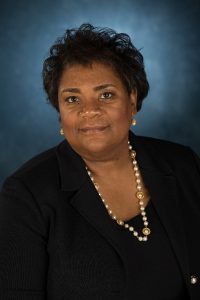
Carmen R. Green, M.D.
Associate Vice President and Associate Dean for Health Equity & Inclusion
Professor of Anesthesiology, Obstetrics and Gynecology & Health Management and Policy
I write today in the summer of 2013, as we approach the 50th anniversary of Dr. Martin Luther King’s “I Have a Dream” speech in Washington, DC. Thus, I reflect on how far we have come while knowing there is still so much to be done. I acknowledge the many people who protested, litigated, and faced jail, fire hoses, beatings in pursuit of educational justice for all in the summer of 1963. Although I was not alive or do not remember many significant moments in the Civil Rights era, I remain fascinated by the time period.
I remember a 5-year old colored girl sitting on her great-grandfather’s knee. She told him she wanted to be a doctor. At that time there were few women doctors and even fewer women doctors who were racial and ethnic minorities. I played with Barbie dolls, read interesting books and was intellectually curious, but never waivered from the dream of being a doctor. My mother and grandfather gave me the inspiration, support and family narratives to live authentically and fully, even if the path was unfamiliar or uncharted. They always encouraged me to dream big while betting on me to win, place or show!
Forty years after that conversation with my great-grandfather, I continue to benefit tremendously from mentors who selflessly invested in me and watched me grow. They looked beyond race and gender and consistently and actively listened to a different voice. They embraced new ideas, consistently believed in me, and encouraged me to create a path where there was none. The power of my – and all – mentors who selflessly support and promote women and racial and ethnic minority physicians is desperately needed. Their efforts will continue to transform medicine. As the great-granddaughter of slaves, free people of color, Cherokees and Choctaws, and Irish immigrants,09o their guidance was transformational for my career in medicine and science. I am grateful.
Despite the many changes in medicine and how we deliver quality health care, being called a doctor is humbling and reminds me that the work is a calling. Being someone’s doctor is a sacred trust and we work in a sacred space. Being a doctor can take you into a person’s shadows or into outer space. There are many more women in medicine than when I was in medical school and we have parity between men and women entering medicine today. However, parity does not exist for racial and ethnic minorities physicians and their representation in society. Furthermore, many of our patients have not experienced educational or health care parity. In fact, many women and minority patients experience an unequal burden of acute and chronic diseases and their stories go unheard. Hence the genesis of my moniker “unequal burdens and unheard voices.” In an increasingly female, diversifying and aging society, all Americans do not uniformly enjoy similar access or the potential benefits of health care and education. More specifically, differences, disparities and inequities in the health care and educational experience exist for women and minorities across the lifespan. These are our patients, as well.
Who is going to tell their story? Who is going to listen? Whose stories do we hear? When do we hear them? It follows that if we are to eliminate health care and educational inequities, we need to have a place for everyone at the table, including women, racial and ethnic minorities, and other individuals who bring a diverse and unique viewpoint. In the spirit of inclusion, and as we seek to eliminate health disparities and promote health equity, we must recall that our strength is in our diversity, our ability to see through multiple and diverse lens, and to hear different and unheard voices. Although challenges may exist, the wisdom, leadership and experiences of women and racial and ethnic minority women physicians continue to be needed. Today, knowing how far we have come while knowing our journey is not finished, I remain optimistic. I see a picture of Dr. King standing next to a welcome sign!

Lori L. Isom, Ph.D.
Professor of Pharmacology & Molecular and Integrative Physiology
Assistant Dean, Recruitment and Pre-Candidate Graduate Education
Director, Program in Biomedical Sciences
To prepare herself for leadership in the biomedical sciences, a young woman must first become a great biomedical scientist. She must find the courage to “dare greatly,” as Theodore Roosevelt would tell us, to be bold, to be innovative, to push the field forward rather than sideways. She must learn to be an effective communicator, conveying the excitement of her work in voice and on paper, and by doing so, establishing herself as a leader in her field. After all, as one of my favorite mentors always says, if it’s not published, you didn’t do it! She must learn to teach in a way that is sensitive to learners from diverse backgrounds and with different learning styles. It is critical that she understand how it feels to not understand. In parallel, she must gain administrative experience. How? By establishing a reputation for good-natured honesty and reliability, by being generous with her time, by volunteering her service, by learning to be a good listener, by learning the facts before offering an opinion and by being compassionate. I think it’s important to keep in mind the idea of paying it forward – altruism in honor of those who took the time to help you. When asked to describe her greatest professional accomplishments, one of my other favorite mentors (who is a fantastic scientist, by the way) lists the people whom she has mentored, rather than the Nature papers she has authored. That’s my idea of true leadership!
In the biomedical sciences, it’s rare to receive instant gratification. In my lab we work on the mechanisms of inherited epilepsy and cardiac arrhythmia due to mutations in voltage-gated sodium channels. We generate transgenic mouse models and use human induced pluripotent stem cells. Believe me, the gratification is never instant! However, as Assistant Dean for Graduate Education in the Medical School, I have the privilege of being able to change a young person’s life for the better in an afternoon – and that makes it all worth it. The graduate students at Michigan do far more for me than I could ever do for them. I urge young women in science to dare greatly. Consider a leadership role. It’s the greatest job in the world.
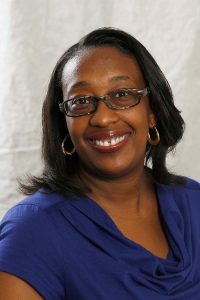 Monica L. Lypson, M.D., MHPE, FACP
Monica L. Lypson, M.D., MHPE, FACP
Professor of Internal Medicine & Medical Education
Assistant Dean for Graduate Medical Education
Young women should take advantage of all leadership opportunities to learn new skills. These opportunities should be in areas for which you have a true interest and passion – regardless of whether they are in medicine. Often for students these opportunities take the form of leadership roles in student groups, community activities and undergraduate studies. In addition, seek out opportunities that expand your sphere of influence, such as national student roles and attending regional conferences. This work early on will help solidify your decision whether or not to pursue leadership roles, identify the type of roles that are right for you and give you valuable experiences with operational issues, as well as the chance to engage, motivate and inspire others. Those are often the key attributes of a strong leader.
When it comes to gender equality and diversity, it is important to see leaders and role models who look like you and have similar experiences. Diversity drives excellence and generates innovation. If we don’t have a portfolio of leaders that reflects everyone in the population, we lose out on critical viewpoints, experiences and knowledge that can enhance an institution’s effectiveness. Harnessing diversity is really about ensuring innovation and excellence.
Another point I want to make is that mentors are critical to a career in leadership. Mentors will help you learn the “rules of the road.” However, it is only when those mentors put themselves on the line and become sponsors that they really help leverage a career. The key is to remember that sponsors can come in any gender, race or ethnicity, and that sponsors and mentors can learn just as much from you as you can learn from them. For example, in the course of my career, I have made a point of taking advantage of all eligible maternity leave options. At times, this meant making new tracks for those who come after me and discussing with my male sponsors how important these options are for women. I used these discussions as educational opportunities for male sponsors and the learning turned them into advocates for other women.
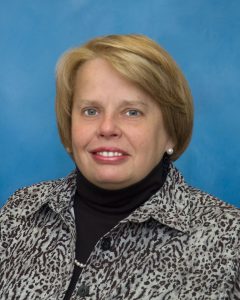 Karin Muraszko, M.D.
Karin Muraszko, M.D.
Julian T Hoff M.D. Professor of Neurosurgery
Chair, Department of Neurosurgery
Professor of Pediatrics, Surgery & Plastic Surgery
Medicine remains exciting and challenging for all who enter. With the rapid accumulation of knowledge and communications now occurring in hyper speed, anyone choosing a career in medicine will find that they must constantly grow and learn to stay relevant and effective. As a female Chair of a Neurosurgery department, I am used to a world that has largely been male dominated. I am struck by the fact that the challenges I have faced are now not just the purview of women but are important to all neurosurgeons.
Over the years, I have learned that preparing for and adapting to change is important. Acquiring skills can be useful, when you least expect it. Learning how to read a budget, design an effective marketing strategy, speak in a public forum, or write an op-ed piece may not seem relevant to a medical career, but can give you talents that will be useful later in life. Personally, I had never really wanted or considered being chair of a department. As a woman, a person with a disability and a pediatric neurosurgeon, it seemed impossible that I would ever be considered for such a position. I applied primarily because I believed it was important that someone from our department communicate the needs of the department to the search committee and to the greater administration. I saw this as an opportunity to improve the department and to let folks know just how good we were. When I was selected, these principles proved to be important to my success as a chair. I truly believe that great leaders work hard to see that those around them succeed. In that sense they are much more moon (reflected glory of their constituents) than sun (self-aggrandizing).
By making use of leadership development courses offered at the University and by enrolling in ELAM (Executive Leadership in Academic Medicine), I began to see myself in a larger picture and not just my role in my department. These experiences gave me a skill set to navigate outside my department and helped me understand the role of neurosurgery in the larger institution. And though all politics are local, I would advise individual physicians to sometimes step outside their departmental structure and participate in groups or committees that are institutional in nature. These experiences can help you understand the larger institution but can also help you understand what a leadership position might look like. It also gives you a bigger yardstick to measure your own abilities and accomplishments. Self-assessment of your individual skills and evaluation by honest mentors can help you have a more accurate picture of who you are and what your talents really are. It is important to remember that mentors need not be similar to us, but rather should be chosen because of their personal and professional skill sets. Had I waited to find mentors that I could relate to or came from a background similar to mine….I would never have found them. If you find you admire someone for what they have done or how they have handled themselves, they are likely someone you can learn from.
Gender equity is important in medicine if we are going to make use of all available talent. Over 50% of medical school classes are now women and I expect that eventually leadership positions will reflect those changes. When I started my residency, the locker rooms read: “Doctors locker room” and “Nurses locker room,” implying that all nurses were women and all doctors were men. That was only 25 years ago! Changes have come and will continue to come. It is important that women seek to make themselves well trained not just in their specialties but to also develop their leadership skills.
Reaching outside your comfort zone often produces the greatest growth and development. Taking on difficult challenges is an important part of leadership development and creates or unearths a skill set that may be useful in the future. In some ways, I believe that being so different from the traditional neurosurgeon, I was liberated from thinking about whose path I would follow and therefore I could create my own unique road. It is liberating to feel comfortable in one’s own skin and know that the career I have chosen has been uniquely my own. Had I listened to advisors that said that a career in neurosurgery was just not possible for a woman, let alone a woman with a disability, I suspect it would have been a much less fulfilling life. Finding mentors who were willing to take the chance on me by being both my greatest supporters and also my most honest critics was important. Most were men and many came from backgrounds other than neurosurgery, but each offered advice and honest criticism of areas that needed improvement. Many had daughters, wives or mothers that had broken their own molds or were experiencing difficulty in their careers and these advisors sought to help someone else face less inequity. Equity isn’t just about gender; it’s about the ability to harness the best from everyone and from every background. It creates a rich and diverse tapestry that is stronger than any individual fiber and far more brilliant than a single colored cloth.
For any interested in knowing more about women in Neurosurgery, I would recommend reading essays in the book: Heart of a Lion, Hands of a Woman: What Women Neurosurgeons Do edited by Benzil and Muraszko. It provides you with a glimpse into the lives of a variety of female neurosurgeons and their unique journeys in medicine.
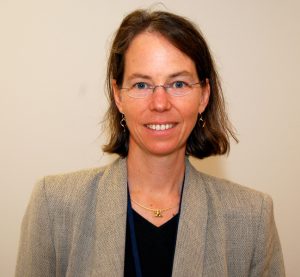 Sally Santen, M.D., Ph.D.
Sally Santen, M.D., Ph.D.
Clinical Associate Professor of Emergency Medicine & Medical Education
Assistant Dean for Educational Research and Quality Improvement
Becoming a leader involves working on your areas of strength, but also addressing your areas of weakness. Early on, I believed that hard work would get me where I wanted to go and I worked to develop my areas of strength. I wanted to be an medical educator. All of the medical educators I knew were physicians without other training. They had learned to be teachers through the medical school model of “see one, do one, teach one,” meaning students train by watching physicians take care of patients or do procedures, then do these same activities and then teach these activities. The teachers I knew had formal training in teaching and I was uncomfortable with the medical school model. This led me to getting a Ph.D. in education- working hard to get smarter and more qualified.
During this process, there were areas of my personal development – my weaknesses – that I neglected to address. By nature, we tend to prefer to do the things that we like and that we are good at. So, we focus our time and energy on our strengths instead of the areas in which we need to improve. It is important to confront and strengthen – even overcome – weaknesses that are barriers to your goals.
Diversity and gender equality are key components of a progressive and thoughtful workplace and team. When a group is not diverse, there is a tendency toward superficial, one-dimensional thinking that reinforces the views, norms and behaviors of the group. In these settings, there may not even be awareness of what is happening. Diversity of all kinds helps us examine and broaden our views, and discover and develop better ways of thinking and deeper understanding.
